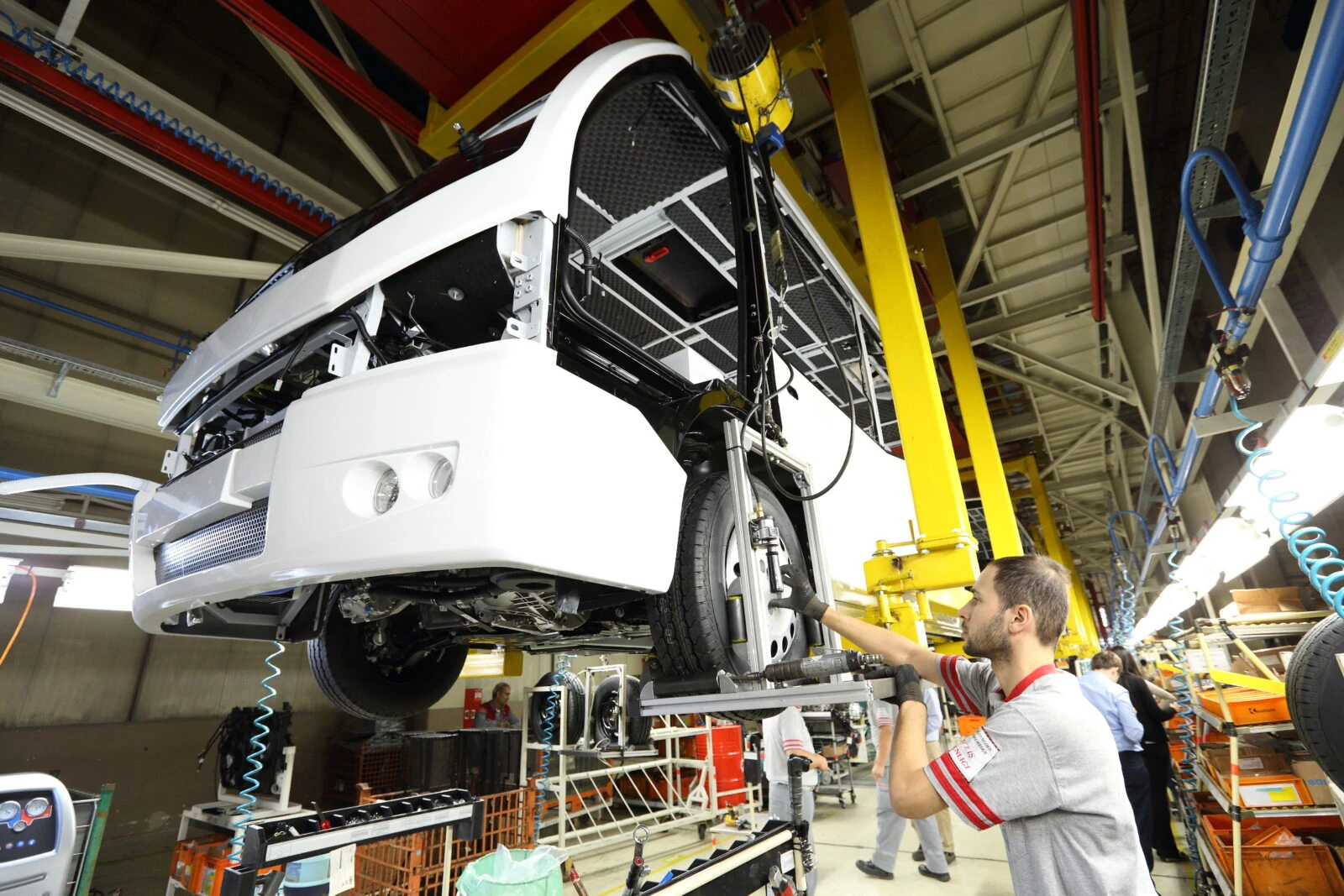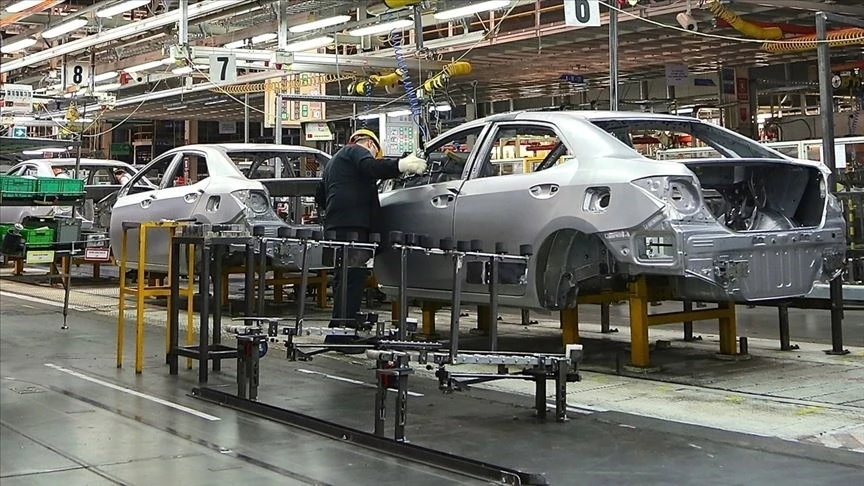Trump tariffs may open door for Turkish auto expansion in US, industry leader says
 File photo shows newly manufactured cars in Türkiye, lined up for export, accessed on Nov. 10, 2024. (IHA Photo)
File photo shows newly manufactured cars in Türkiye, lined up for export, accessed on Nov. 10, 2024. (IHA Photo)
As tariff disputes between the United States and China continue to create uncertainty in global trade, Türkiye may find new openings in the American market, particularly in the export of tractors and automotive components, according to Cengiz Eroldu, President of the Automotive Manufacturers Association (OSD).
Eroldu remarked that Türkiye has remained largely insulated from the Trump administration’s sweeping tariffs—measures that have affected 185 countries with rates ranging from 10% to 49%. He recalled that while a 25% tariff on passenger vehicles came into effect in the U.S. on April 3, it does not apply to tractors, minibuses, midibuses, buses, and heavy-duty commercial vehicles over five tons.
In assessing the impact on Türkiye’s exports, Eroldu said that direct shipments of fully assembled vehicles to the U.S. are limited, largely due to the geographic distance. However, he emphasized the country’s strength in parts exports and identified several vehicle segments that may present new advantages.
“Tractors, minibuses, midibuses and even buses—though buses can be a more challenging product for the U.S. market—could offer relative competitive advantages compared to other markets,” he said.
‘Turkish suppliers may consider investment in the US’
In 2024, Türkiye exported $1.4 billion worth of automotive goods to the United States. Of this, $1 billion came from the parts and components industry, while tractor exports accounted for $178 million and bus and minibus exports for $166 million.
Given the relatively limited impact of tariffs on these categories, Eroldu said there is room to increase operations. “Since both tractors and buses-minibuses are less affected, we believe there’s potential to expand our presence in these areas,” he stated.

Eroldu believes that the U.S. automotive market, though highly specialized, offers specific opportunities in sectors such as buses, tractors, and trucks. He acknowledged that the truck and bus markets in the U.S. differ considerably from those in Türkiye, but suggested the tractor segment could be a promising entry point.
He also pointed to Türkiye’s potential to outcompete suppliers from Europe and China in the U.S. tractor market. While Türkiye currently sends just 4% of its total automotive exports to the United States, he said even a doubling of that share would have limited overall impact. Still, he added that the potential for increased investment by Turkish suppliers in the U.S. exists, noting, “There are already a few companies present, and that number could grow.”
Domestic challenges persist in 2025
Turning to domestic figures, Eroldu outlined the local market share for domestically produced vehicles in 2024. Passenger cars had a 30% domestic production rate, light commercial vehicles 27%, trucks 63%, buses 100%, and tractors 90%.
Meanwhile, official data shows that Türkiye’s automotive production fell by 9% in the first quarter of 2025 compared to the previous year, while domestic auto sales declined by 7%. Capacity utilization across the sector stood at 65%, with 66% in light vehicles, 47% in trucks, 60% in buses and midibuses, and 44% in tractors.

Pointing out these figures, Eroldu warned that the sector faces ongoing challenges related to capacity utilization, stating that overall usage stood at 70% last year. The decline in domestic market share—from over 40% in previous years to around 30%—has contributed to this issue. “We are experiencing a loss of competitiveness, which is well known in the sector,” he said. “The drop in capacity utilization only magnifies this problem. Despite achieving record export levels in 2024, we still need to become more competitive.”
Eroldu also highlighted the impact of foreign investment in the industry, noting that its benefits would be visible in this year’s production statistics. With current and upcoming investments, he expects Türkiye’s installed automotive production capacity to rise significantly. “These investments could bring us to an installed capacity of around 2.7 to 2.8 million units. Our goal is to maximize how much of this capacity we can utilize,” he said, stressing that the automotive sector plays a crucial role in Türkiye’s broader economic output.
Currently, Türkiye ranks 14th in global automotive manufacturing. However, Eroldu expressed hope that, through increased capacity and exports, the country could climb to 10th place.
Becoming the third-largest automotive exporter in Europe is a key target of the Turkish automotive industry, he noted, noting that sector exports have already reached $50 billion.



